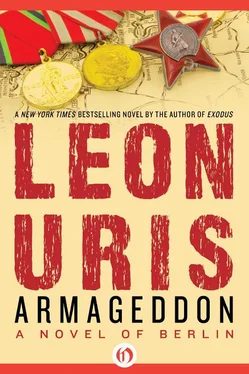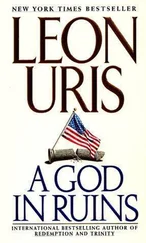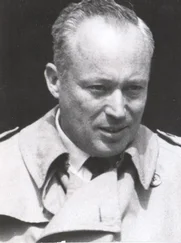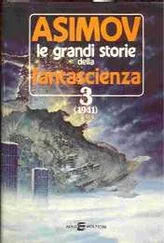Armageddon - Leon Uris
Здесь есть возможность читать онлайн «Armageddon - Leon Uris» весь текст электронной книги совершенно бесплатно (целиком полную версию без сокращений). В некоторых случаях можно слушать аудио, скачать через торрент в формате fb2 и присутствует краткое содержание. Жанр: Старинная литература, на английском языке. Описание произведения, (предисловие) а так же отзывы посетителей доступны на портале библиотеки ЛибКат.
- Название:Leon Uris
- Автор:
- Жанр:
- Год:неизвестен
- ISBN:нет данных
- Рейтинг книги:4 / 5. Голосов: 1
-
Избранное:Добавить в избранное
- Отзывы:
-
Ваша оценка:
- 80
- 1
- 2
- 3
- 4
- 5
Leon Uris: краткое содержание, описание и аннотация
Предлагаем к чтению аннотацию, описание, краткое содержание или предисловие (зависит от того, что написал сам автор книги «Leon Uris»). Если вы не нашли необходимую информацию о книге — напишите в комментариях, мы постараемся отыскать её.
Leon Uris — читать онлайн бесплатно полную книгу (весь текст) целиком
Ниже представлен текст книги, разбитый по страницам. Система сохранения места последней прочитанной страницы, позволяет с удобством читать онлайн бесплатно книгу «Leon Uris», без необходимости каждый раз заново искать на чём Вы остановились. Поставьте закладку, и сможете в любой момент перейти на страницу, на которой закончили чтение.
Интервал:
Закладка:
In the classroom Sean would have argued that the Russian is a decent human being, peaceful by nature, gifted with scientific genius, driven by normal desires. Sean, in a classroom, might have questioned the Purge Trial statistics or whether the Kulaks were truly liquidated or deserved to be broken up. Such things as Katyn massacres, the deliberate butchery of Warsaw simply did not exist in a civilized world. Yes, a teacher would question and he would theorize.
But Sean’s ability to theorize had been impaired by the months of study in Queen Mother’s Gate. He learned not to hold CIC reports as fantasy. For the most part they were cold-blooded, nonpolitical in viewpoint, nontheoretical, and filled with facts which had to be accurate by the very nature and function of CIC.
Any former ideas or ideals of humanism among peoples had been destroyed the moment Sean O’Sullivan walked through the gates of the Schwabenwald Concentration Camp.
The death of Poland and the fears about Russia were truth:
Warsaw is eighty-five per cent destroyed. A quarter of a million people, mostly civilians were killed. It is positive beyond doubt that a Russian crossing of the Vistula River could have been made and prevented the entire carnage. The destruction of Warsaw and particularly the Home Army was a deliberate, calculated political move on the part of the Russians.
Was General Andrew Jackson Hansen a ranting Red baiter? For ten solid years Hansen had pleaded with the Army to form a large and effective Russian study section. He wanted to train men to speak Russian, to understand the people and the motives and the methods of dealing with them. But, like so many of Hansen’s ideas, this one also hit a brass wall. The time was not fashionable. An American Army with such a department in the days before World War II would have brought the instant wrath of the liberals on their heads. Well, A. J. Hansen would have his Russian study section now, in the flesh, in Berlin.
Sean found himself hypnotized by the summations on Russian characteristics and behavior during the war.
“In the beginning,” Sean read, “the Red Army had been demoralized by the loss of more than half of their entire officer corps by the Purge Trials of 1936–38. A staggering total of 90 per cent of the colonels and generals had been liquidated by Stalin.
“In 1940, the Russian expedition against Finland bared the state of disaster facing the Red Army. The Russians fought in Finland with little heart or stamina. They were mauled and outfought by the Finns. This shocking revelation and the sudden realization by the Russian people that their “Red Army” was far from invincible brought about a frantic reorganization.
“Soviet Political Commissars are attached to each unit of size. In addition, any officer and soldier who is also a member of the Communist Party oftentimes holds the power over the actual military commander. In essence, the Red Army has a dual command; the officers on one side and the commissars and members of the party on the other. The commissars, whose existence depends upon ultimate performance, used every known fear tactic to whip the Army into a fighting mood.
“The Red Army is essentially a peasant army. The soldiers of the Red Army understand one basic plea ... save the soil ... and save the motherland. When Germany attacked and the Red Army reeled back the commissars were clever enough not to appeal to save Communism or the Soviet ‘way of life.’ As in the old days of Bread, Land, Peace ... the commissars cried, ‘Save the motherland!’ Commissars, officers, and party members within the Army literally stood behind their troops with machine guns pointed at their backs to keep them from further retreat.
“The soldier from the West is fairly predictable. One can surmise what a German or a French or Italian group of men will do under certain circumstances. However, the Russian soldier is an Asian, an oriental of sorts and he is completely unpredictable by Western standards. He will fight like a wild man on a given day. On another day, under the same circumstances, he will break and run.
“In the beginning of the war, victory was within German grasp. Hitler, however, balked at ordering a frontal assault and street fight to take Leningrad, setting siege instead. The second great error was the decision not to press for the capture of Moscow but instead to drive for the oil fields in the south. Capture of Leningrad and Moscow, it is believed, would have collapsed Russian morale beyond redemption.
“Furthermore, the Ukrainians, White Russians, Georgians, and other captive states within the Soviet Union have always breathed a fire of nationalism and desire for independence of Moscow and Russia. At first, these, along with thousands of Russian intellectuals, embraced the Germans as liberators. Free from the mental prison of Communism the reception toward the Germans was a startling revelation.
“However, the honeymoon was short. The basic Nazi stock in trade was to consider the Russians and other Slavs as “subhumans.” This Nazi (and German) behavior played right into the desperate Russian propaganda mills. Now, for the first time, the Russian understood fully that the Germans meant to liquidate them as a people or reduce them to serfdom. Out of sheer fear for survival the Russians rallied.
“The third German blunder therefore was the playing out of their Aryan/superman myth. A partly sympathetic White Russian, Ukrainian, and Russian public awaited them. The Germans drove them back into Stalin’s arms.
“The Russian soldier may be the best in the entire world. This is because he is the most expendable. The famous steamroller tactic of World War I was renewed in World War II. This system, basically, uses humans in hordes. Chop down one line and another comes at you. Chop down a third line and face a fourth. Chop down the thirtieth and you face the thirty-first.
“Russians are like a pack of animals on the attack and otherwise. The pack strikes best in numbers. And ... like the animal ... he is most vicious when he is cornered.
“Like the animal, the Russian blends into the natural backgrounds of the landscape and he knows how to use terrain for protection. Like the animal, the Russian is able to endure cold and hunger ... better than any soldier in the world. No Russian soldier would think of surrendering to the enemy merely because he is starving. He can disappear into the land like a fawn. He can survive from roots and herbs. For a Russian soldier to get frostbite is considered a crime by his superiors. And ... like the animal ... his instincts are sharper and his courage greater under the cover of night. He is a superb night fighter.
“Although this Russian soldier is a resourceful animal he does not exist as an individual for he is a conditioned and controlled animal. All the thinking is done for him from above. He is never asked or expected to make a decision on his own.
“The top commanders of the Red Army are excellent soldiers of sound military judgment.
“However, the captains, majors, lieutenant colonels and those in the middle ‘field rank’ can think only as far as the staff over them orders. These ‘field’ rank commanders carry out their orders to the fraction of a letter. They carry them out on fear of liquidation from their own superiors or the political commissars. There have been thousands of individual instances where a field commander has failed to exploit a sudden breakthrough because he simply will not assume personal responsibility.
“Most Russian tactics are based on using masses of men to overwhelm the enemy. They have good armor, equal for the most part to the German armor, but their tank tactics are crude. If the Germans knock out a dozen Russian tanks, they face another dozen.
“Their legendary artillery is also based on using mammoth numbers to saturate the target.
Читать дальшеИнтервал:
Закладка:
Похожие книги на «Leon Uris»
Представляем Вашему вниманию похожие книги на «Leon Uris» списком для выбора. Мы отобрали схожую по названию и смыслу литературу в надежде предоставить читателям больше вариантов отыскать новые, интересные, ещё непрочитанные произведения.
Обсуждение, отзывы о книге «Leon Uris» и просто собственные мнения читателей. Оставьте ваши комментарии, напишите, что Вы думаете о произведении, его смысле или главных героях. Укажите что конкретно понравилось, а что нет, и почему Вы так считаете.











